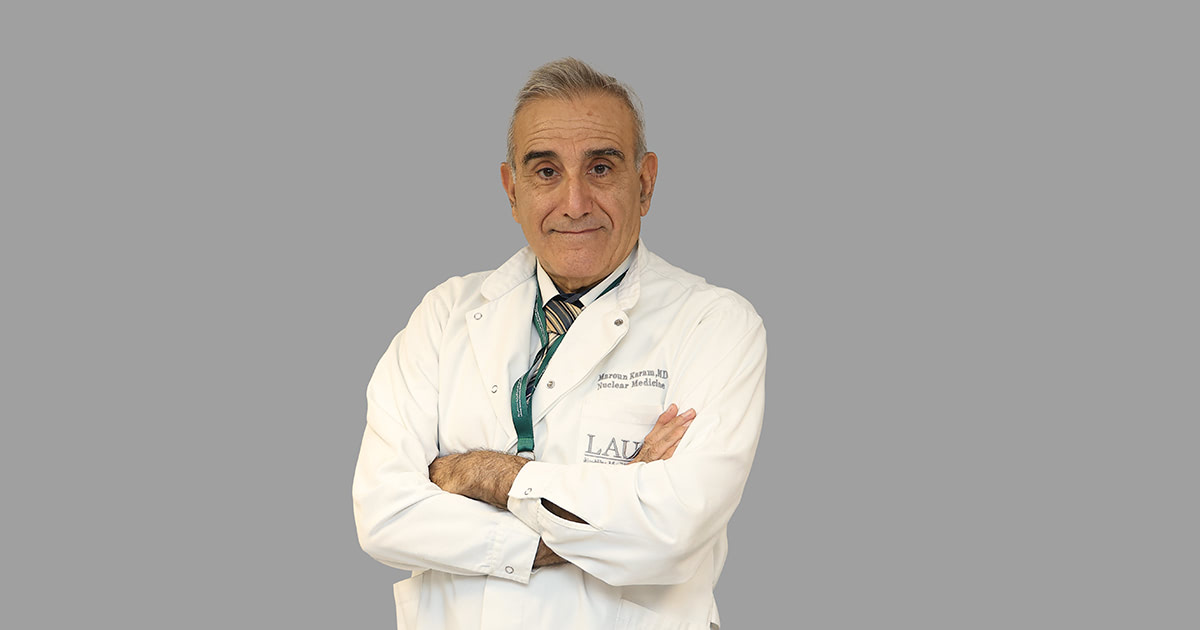Dr. Maroun Karam Publishes New Findings on Parathyroid Imaging Modalities
In this new study, Dr. Karam sheds light on the reasons behind the decline of a common medical imaging test for an overactive thyroid gland.
A study recently published by Professor of Clinical Medicine in the Department of Medical Imaging/Nuclear Medicine at the Gilbert and Rose-Marie Chagoury School of Medicine Maroun Karam found that a common medical imaging test for thyroid problems is becoming less effective and that a newer test might be better at finding abnormal growths.
In the study, Dr. Karam examines the decline in the performance of [99mTc-]-sestamibi parathyroid single photon emission imaging (SPECT/SPECT/CT) and the potential of [18F]-choline PET/CT to outperform it in localizing adenomas (benign tumors) in primary sporadic hyperparathyroidism.
Among the factors that have contributed to its decline, states Dr. Karam, are the suboptimal preparation of the radiopharmaceutical, changes in patient demographics with more asymptomatic cases, and the inherent limitations of SPECT/SPECT/CT in detecting smaller adenomas or hyperplastic (enlarged) glands.
Another factor responsible for the decreased performance of [99mTc]-sestamibi single photon emission imaging is a rise in the performance of alternative imaging modalities, particularly [18F]-choline.
The findings underscore the need for tailored imaging strategies and the potential for newer modalities such as [18F]-choline PET/CT to play a more significant role in clinical practice, especially given its superior resolution and histology-independent performance.
Dr. Karam’s insights are based on his more than 40 years’ experience and research in nuclear medicine.
Distinguished in his field, Dr. Karam received the International Best Abstract Award at the Society of Nuclear Medicine & Molecular Imaging 2023 Annual Meeting in Chicago, for his paper on the use of Ga68 PSMA-11 PET/CT for staging prostate cancer.
In the award-winning abstract, titled Performance and impact on management of Ga68 PSAM11 staging PET/CT in patients with Gleason 6 and 7 prostate cancer, Dr. Karam concludes that while PET/CT may not be necessary for low-risk patients, it has significant value in staging and guiding treatment for intermediate-risk patients, especially those with a Gleason score of 7 (4+3).
To browse more scholarly output by the LAU community, visit our open-access digital archive, the Lebanese American University Repository (LAUR).
